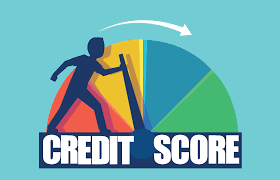Having a good credit score is the key to unlocking many of life’s luxuries. Credit scores are now commonly checked by landlords, car dealerships, banks and even employers before making any sort of business decision about you. For this reason it is important that you have at least an understanding of what factors into your credit rating and how they affect you.
What is a credit score?
A credit score is a number that represents the likelihood of you defaulting on an obligation such as paying back a loan or mortgage. It can be used by lenders and other interested parties to estimate your trustworthiness in terms of financial responsibility. The most common credit scores range from 300-850 with 650 being the average US credit score.
It is important to note that a credit score can be assessed in several different ways and by several different companies, each with their own unique way of assessing an individual’s trustworthiness. The most common scores range from 300-850 with 650 being the average US Score. What factors affect a credit score? There are a number of factors that affect your credit score.
Some of the more commonly assessed items include:
- Payment history – A record of whether you’ve paid past loans on time, including how many times you’ve been late with payments.
- Number of open accounts- The number of new accounts in the past year (e.g., car loans, store cards).
- Type and age of credit – Openness about the types of credit you have, for example whether you have had a student loan, car loan or mortgage.
- Number of inquiries – The number of recent applications for new lines of credit.
How long does it take to build up your credit score?
A good credit score is merely an indication that lenders are likely to feel comfortable lending money to you. Your credit report will give lenders an understanding of how willing you are to repay debts, but all reports indicate that it takes at least six months of responsible borrowing and paying back loans for a lender to trust that you won’t default.
Your first step should be getting a credit builder loan or credit card, and then making your payments on time. When you’re just starting out, every on-time payment is a positive mark on your credit report which makes it easier for you to get approved for more lucrative loans such as mortgages or car loans.
Can I improve my credit score?
Yes! If someone else has taken the trouble to assess you with a low credit score, there are things you can do to improve your rating. A lot of these steps are common sense, but it is worth noting that if you have any derogatory marks on your credit report, such as bankruptcy or foreclosure they will still show up on your credit report for roughly seven years.
It is also important to note that if you consistently make your payments on time and keep a low balance, this will also improve your credit score.
What is considered a good credit score?
It is difficult to determine what the average credit score is because it varies based on who is assessing you. For example, if you’re applying for a rental property, the landlord might use one credit score, and if you’re applying for a car loan or mortgage another company might be used.
The most common credit scores range from 300-850 with 650 being the average US Score. Anything above 700 is considered to be an exceptional credit rating. That said, this doesn’t mean that anything below 600 is considered poor.
What can I do if my credit score is too low?
If you find yourself with a low credit score it means that most likely your history of borrowing, repaying loans and other financial obligations hasn’t been in your favor. It’s important to note that you cannot lose money through bankruptcy or foreclosure; however, these instances are likely to have negative marks on your credit reports.
It’s important to note that you cannot lose money through bankruptcy or foreclosure; however, these instances are likely to have negative marks on your credit reports. It can take around six months of good behavior for these poor marks to begin to disappear, but the only way you can really get your credit score up is to improve your record of paying back debt.
